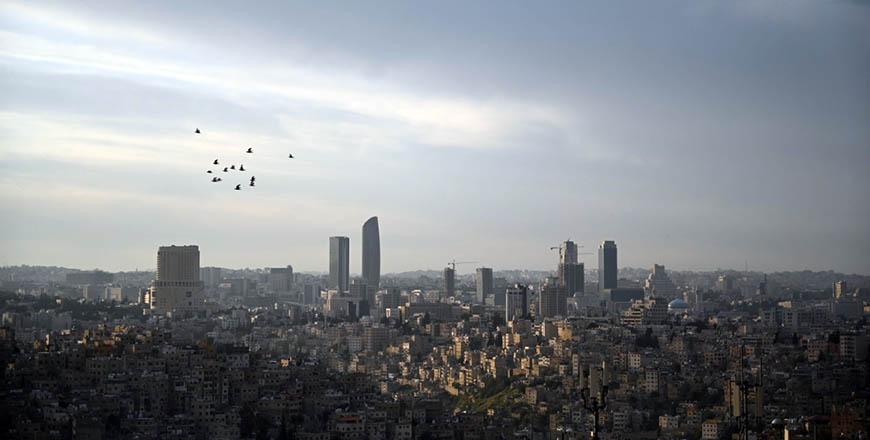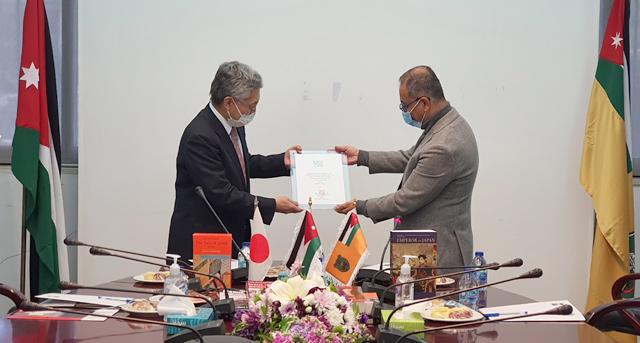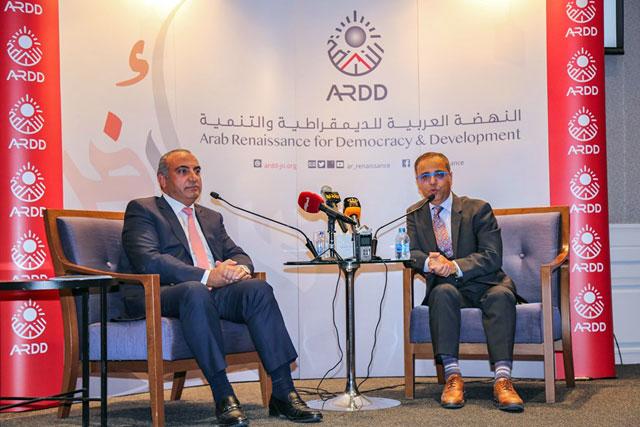You are here
Dialogue session hears of political, economic strategies to address virus aftermath
By Maria Weldali - Apr 30,2020 - Last updated at Apr 30,2020

The coronavirus crisis has led to 'a substantial scale' of unemployment, Vice President for Studies at Carnegie Endowment for International Peace Marwan Al Muasher said during a virtual session held by the Arab Renaissance for Democracy and Development on Wednesday (Photo by Amjad Ghsoun)
AMMAN — The Arab Renaissance for Democracy and Development (ARDD) on Wednesday held a virtual dialogue session on the future of the Arab world as part of its regional discussion series on social protection policies in the region.
The session, moderated by the Chair of the Senate Labour and Development Committee Sawsan Majali, was streamed live on ARDD’s Facebook page via the online conferencing platform Zoom.
The coronavirus crisis has led to “a substantial scale” of unemployment, Vice President for Studies at Carnegie Endowment for International Peace Marwan Al Muasher said during the session.
Economic challenges caused by the virus have affected the world, and the most seriously affected individuals are daily wage workers and the underprivileged, Muasher, who is a former deputy prime minister and foreign minister of Jordan, said.
“What is the key to solve things?” Muasher asked. To start, he said, “We need to admit that there are no magical solutions to the current situation. We are going into a long-term hardship. Undoubtedly, unemployment rates will increase, therefore the priority for any government is to directly help the least fortunate.”
He highlighted the importance of ensuring that people are partners in decision making, stressing that the countries that will succeed in the medium and long run are those that involve their people.
“Social distancing does not mean political distancing,” Muasher said.
As indicators show, increasing commercial exchange between Arab countries would lead to economic growth, Muasher added.
As for Director of the Centre for Strategic Studies (CSS) Zaid Eyadat, he said that research centres’ contributions must be built upon two concrete goals: Strengthening public discussions on common issues and rationalising the formulation mechanisms for public policies and decision making among officials by making recommendations based on scientific grounds.
“At CSS, we work on various aspects, primarily in the areas of public opinion polls and studies, geostrategic shifts and their impacts on Jordan’s policies, intellectual projects and recently a public policies forum was added,” Eyadat said.
In the health sphere, the Jordanian experience in dealing with the pandemic has been “successful, regardless of some mistakes”, the CSS director added.
The CSS is planning to work on a project titled “Post-Corona Jordan: Challenges and Options”, which sheds light on different aspects, including economic policies and geostrategic and security considerations.
Dina Al Khawaga, director at the Asfari Institute for Civil Society and Citizenship, which is affiliated with the American University of Beirut, said that the institute aims to strengthen interaction among social activists and incorporate associations and cooperative movements as well as civil actors.
With this objective, the institute has produced a two-year research project on society, in the context of the pandemic and its aftermath.
Related Articles
AMMAN — The Nippon Foundation, as part of its Read Japan Project, on Wednesday donated 92 books to the Centre for Strategic Studies (CSS) at
AMMAN — The Arab Renaissance Organisation for Democracy and Development (ARDD) Al Nahda Thought Forum on Monday held a panel discussion, hos
AMMAN— “United We Stand,” a six month partnership project between the Centre for Strategic Studies (CSS) at the University of Jordan in part













